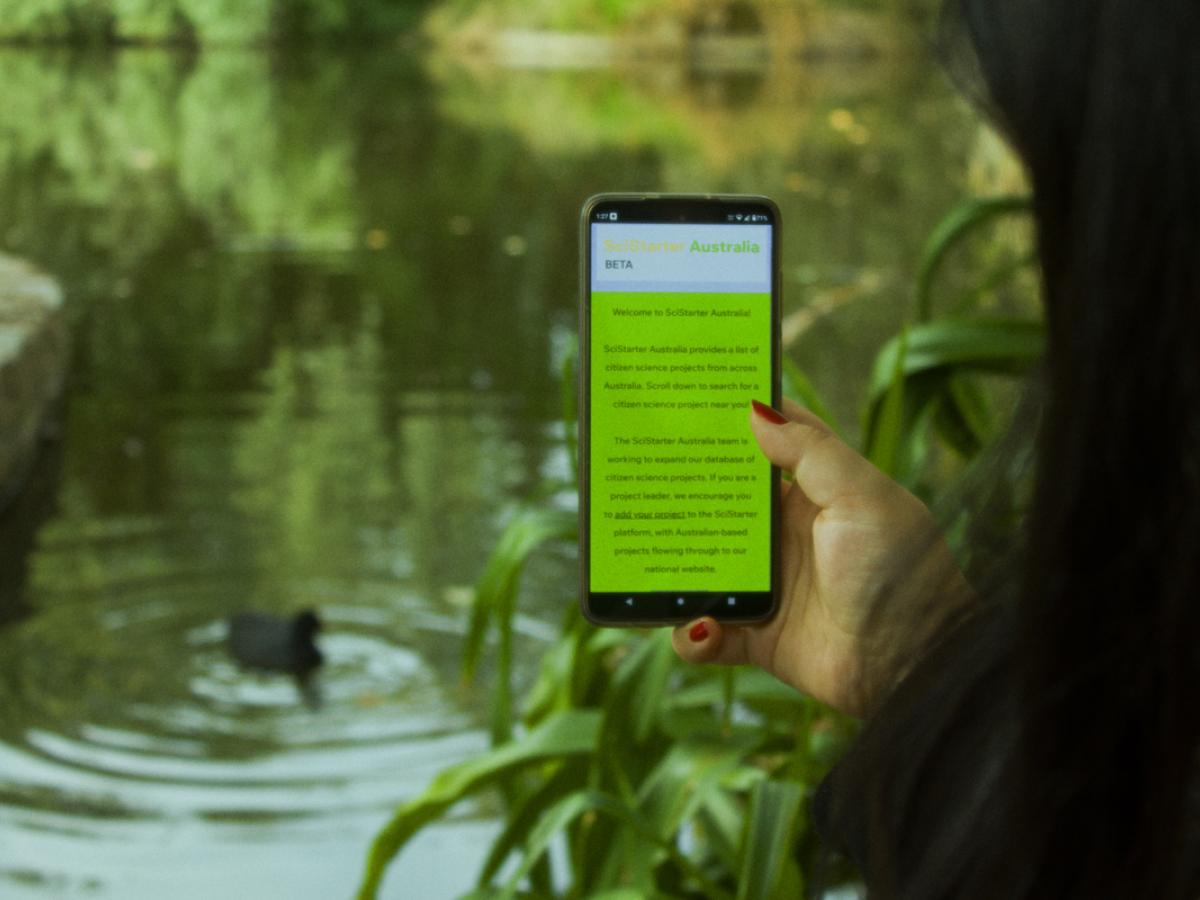SciStarter Australia is a new home for citizen science
Citizen science platform SciStarter Australia has officially launched on the final day of Global Citizen Science month, creating a one-stop location for citizen science projects seeking volunteers in Australia.

Photo credit: Michail Sergeev Ivanov.
SciStarter Australia will serve as a hub for citizen scientists, collating a list of vetted scientific projects and promoting citizen science best practices, building on a tested and internationally recognised infrastructure from the United States and the Atlas of living Australia’s BioCollect platform.
“With SciStarter Australia now live, it has never been easier to find a project that interests you and for the public to contribute to the understanding of our world,” says project co-lead Professor Frank Grützner, from the University of Adelaide’s School of Biological Sciences and the Environment Institute.
“We hope SciStarter Australia will bring new capabilities and increase participation in citizen science projects here in South Australia and across the country.”
SciStarter Australia, which has launched in beta form, will enable greater accessibility to and visibility about science projects that are open to public participation and collaboration.
Project co-lead Professor Rachel Ankeny, from the University of Adelaide’s School of Humanities, says the project will provide insights into how citizen science is performed in Australia.
“The SciStarter Australia platform will allow us to investigate how citizen science is being done and initiate more efforts to diversify participation so that all Australians can collaborate on these important scientific activities,” says Professor Ankeny.
“It will also allow more engagement with communities and businesses so that their members can volunteer for citizen science activities that align with their interests and skills."
SciStarter Australia received a $160,000 grant from the South Australian government’s Citizen Science Fund.
Its advisory board includes members representing Flinders University, the University of South Australia, the Australian Citizen Science Association including the SA Chapter, the Atlas of Living Australia (ALA), the South Australian Department for Environment and Water, and SciStarter (USA).
Just like science is a collaborative pursuit, Professor Ankeny says partnership and collaboration were key to the project coming to fruition.
“The goal of the new SciStarter Australia platform is to provide a sustainable and accessible space for those conducting citizen science projects to make potential participants aware of their fantastic projects, and hence it is a collaboration between all with interests in Australian citizen science,” she says.
Dr Annie Lane, Chair of the Australian Citizen Science Association, says she is thrilled to be able to celebrate the launch of SciStarter Australia.
“This initiative aims to mobilise the Australian public and facilitate connections between people and scientists and the diverse range of scientific projects conducted by community groups,” says Dr Lane.
“Citizen science empowers individuals to contribute to the creation of new knowledge through collaborative scientific investigation. SciStarter Australia will facilitate this involvement by assisting people in discovering projects of interest and joining relevant communities.”
Director of the ALA, Dr Andre Zerger, says SciStarter Australia will positively impact what his organisation can achieve.
“Citizen science is an important data source for the ALA, and we have a long history of partnerships with the citizen science community as the national biodiversity data aggregator,” Dr Zerger says.
“SciStarter Australia will make participating in citizen science projects easier and more discoverable for local communities, better enabling stronger research and biodiversity outcomes for Australia.”
SciStarter Founder, Professor Darlene Cavalier, says she is excited to see the initiative she started reach further across the world.
“This collaboration aims to leverage the technological infrastructure of SciStarter to help efficiently and effectively connect Australians to citizen-science research that needs their help," says Professor Cavalier, who is Professor of Practice at Arizona State University.
"We are very excited to deploy this customised instance of SciStarter to help accelerate important research and build knowledge about the projects and participants powering this movement in Australia."

Citizen scientist Peter Hastwell with an echidna. Photo credit: Peter Hastwell
Peter Hastwell is a veteran citizen scientist who has contributed to projects such as iNaturalist, Echidna CSI, Bird-Life Australia, Roadkill, Feral Scan, and Frog ID – and even helped identify a new frog species named for Kangaroo Island.
He says SciStarter Australia will be useful in finding new scientific projects to contribute to.
“Previously, finding out about project possibilities was piecemeal, relying on media or word of mouth,” Peter says.
“SciStarter Australia provides an interactive database platform that puts together the plethora of citizen science projects around the country.
"I can now easily search for projects that I may never have heard of that might fit my interests, activities, locations, or abilities.”
The SciStarter Australia team is working to expand the list of citizen science projects and encourages project leaders to add their projects to the global SciStarter platform.
Australian-based projects will flow through to the bespoke national website.
Visit the SciStarter Australia website here, and check out its official YouTube channel.
Media contacts:
Professor Frank Grützner, School of Biological Sciences, University of Adelaide Phone: + 61 8 8313 4812, Email: frank.grutzner@adelaide.edu.au
Isabella Wilson, School of Biological Sciences, University of Adelaide Phone: + 61 0413 538 112, Email: isabella.wilson@adelaide.edu.au
Johnny von Einem, Media Coordinator, The University of Adelaide Mobile: +61 0481 688 436, Email: johnny.voneinem@adelaide.edu.au
